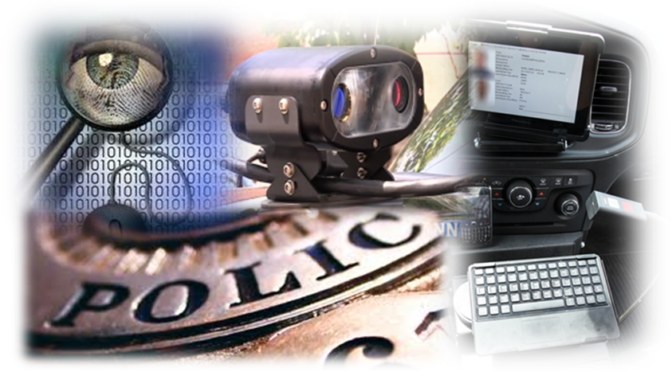As technology continues to advance, law enforcement has found it necessary to adapt and evolve alongside it. Rather than let themselves be technologically outgunned by tech-savvy criminals, law enforcement has utilized the advancements of the 21st century as weapons in the fight against crime.
One instance of this is in social media. The idea that almost everybody has voluntarily uploaded a database of their own personal information via Facebook or Instagram has been advantageous to investigators. These kind of apps let police look through pictures, phone numbers, addresses, lists of known associates (friends) etc… all from the comfort of a computer screen or smartphone. It is also useful in vetting potential applicants for employment. Police also use social media as a method of social outreach to their communities, fostering a culture of respect between police and the public.
 Smartphones and tablets have other uses in the field besides quick access to social media. The access to GPS via Google Maps or Apple Maps can help officers find their way to a destination more quickly and avoid high traffic areas. GPS has the added advantage of being able to record incident locations. There are also translation applications which can help officers communicate with witnesses or suspects that may speak another language, without the hassle of needing to wait for a human translator. They also allow officers to take a picture and immediately send it off for analysis.
Smartphones and tablets have other uses in the field besides quick access to social media. The access to GPS via Google Maps or Apple Maps can help officers find their way to a destination more quickly and avoid high traffic areas. GPS has the added advantage of being able to record incident locations. There are also translation applications which can help officers communicate with witnesses or suspects that may speak another language, without the hassle of needing to wait for a human translator. They also allow officers to take a picture and immediately send it off for analysis.
 Another millennial technology that law enforcement has begun to adapt are unmanned drones. These flying machines can record images and videos in places foot patrols may not be able to access, and can send the information back in real time to crime analysts or department leaders. This can potentially be used to assess hostile situations from afar so as to minimize risk to law enforcement personnel.
Another millennial technology that law enforcement has begun to adapt are unmanned drones. These flying machines can record images and videos in places foot patrols may not be able to access, and can send the information back in real time to crime analysts or department leaders. This can potentially be used to assess hostile situations from afar so as to minimize risk to law enforcement personnel.
 Back at the precinct, powerful analytics software helps crime agencies study and recognize patterns and trends in crime. The data produced allows leadership to assign citywide resources to the places they will be most effectively utilized. At the same time, investigative case management software is helping investigators to keep track of their investigations in an easily accessible and secure format. Much of this software is available either on-premise or via the cloud. These technologies help law enforcement be more effective in their day to day dealings.
Back at the precinct, powerful analytics software helps crime agencies study and recognize patterns and trends in crime. The data produced allows leadership to assign citywide resources to the places they will be most effectively utilized. At the same time, investigative case management software is helping investigators to keep track of their investigations in an easily accessible and secure format. Much of this software is available either on-premise or via the cloud. These technologies help law enforcement be more effective in their day to day dealings.
